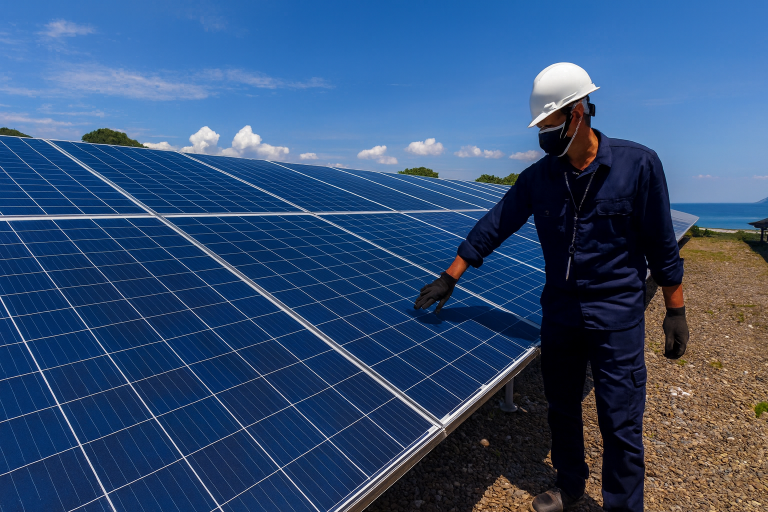Jakarta – The Indonesian government, together with the Institute for Essential Services Reform (IESR), will hold the Indonesia Solar Summit (ISS) 2025 on September 11 in Jakarta. This event is being held to address the challenges of utilising Indonesia’s abundant solar energy potential, which exceeds seven terawatts (TW), as a source of capital to accelerate the transition to clean energy, which has been partially utilised.
ISS 2025 carries the theme “Solarising Indonesia: Powering Equity, Economy, and Climate Action”. This forum is expected to provide momentum to strengthen the national commitment to solar energy, bringing together government officials, business actors, technology providers, academics, and local communities.
“Solar energy is the key to clean energy transition. With its enormous potential, we have the opportunity to leap into a greener future. But its utilisation should not be limited to large industries. Solar power plants must also be present in schools, Islamic boarding schools, MSMEs, and households,” said Marlistya Citraningrum, Sustainable Energy Access Program Manager at IESR, in a media briefing on Tuesday, September 2.
National solar power achievements and challenges
By May 2025, the national installed capacity of solar power plants had exceeded 1,000 MW (1 GW). This figure includes rooftop solar power plants in households, MSMEs, and large companies that have installed solar systems to reduce electricity costs while meeting the demand for green energy in the export market.
Despite positive developments, Marlistya emphasised that there are still major challenges, such as frequently changing regulations, limited financing, and a domestic supply chain that is not yet strong. “This momentum must not stop at pilot projects, but must enter the mainstream of the national energy system,” he said.
The government is targeting a capacity of 17.1 GW of solar power in PLN’s 2025–2034 Electricity Supply Business Plan (RUPTL). In addition, President Prabowo Subianto has launched a program for 100 GW of solar power spread across villages, aimed at equalising access to energy and accelerating decarbonization.
“We are preparing new regulations, including revisions to Presidential Regulation No. 112/2022 and the Minister of Energy and Mineral Resources Regulation on parallel operation of solar power plants,” explained Andriah Feby Misna, Director of New and Renewable Energy at the Ministry of Energy and Mineral Resources.
Andriah added that the role of local governments is vital in the success of solar power projects. “From spatial planning, land acquisition, to the allocation of local government budgets for solar power projects in public facilities, everything must be encouraged so that investment in renewable energy runs more smoothly,” she said.
Investment and supply chain
According to Alvin Putra Sisdwinugraha, IESR’s Electricity and Renewable Energy Analyst, the growth of solar power plants in Indonesia is still dominated by large-scale projects, with an installed capacity of 916 MW by the end of 2024. However, a new trend is emerging in the industrial sector through captive solar power plants, which are expected to add more than 100 MW of capacity in 2024.
“Captive solar power plants have been proven to increase the competitiveness of the Indonesian industry in the global market. But for more to be installed, we need transparency in the planning, data, and licensing systems,” explained Alvin.
In terms of the supply chain, the national solar module production capacity has reached 11.7 GWp per year. However, the price of local modules is still 30–40 per cent more expensive than imported ones. “Consistent domestic demand and fiscal incentives such as exemption from raw material import duties are urgently needed,” added Alvin.
The ISS has been held since 2022 and has evolved into an annual forum that promotes multi-stakeholder engagement in solar energy development. This year’s fourth edition is considered strategic because it coincides with the momentum of the energy transition acceleration under the new administration. Registration for ISS 2025 is free and can be done through idsolarsummit.info. (Hartatik)
Banner photo: Image generated by OpenAI’s DALL·E via ChatGPT (2025)















